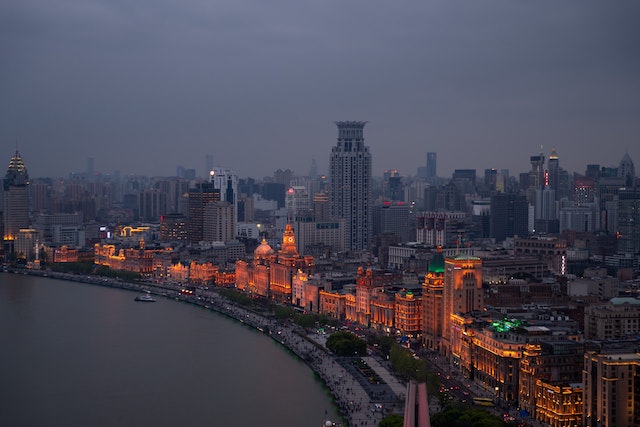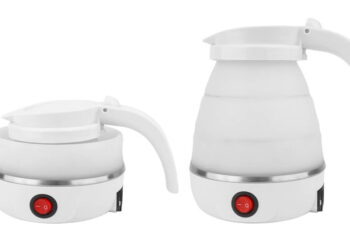Photo by Maridav/Shutterstock
Wander and Experience is reader-supported. When you buy through links on our site, we may earn an affiliate commission.
Many inexperienced travelers take a narrow view of the hotel booking process. They think that they should book a single hotel for a trip or destination that they feel will best fit a wide range of needs for themself. If they can book a good location, some decent facilities like a pool or gym, and a price near their target average per night, they feel they will be set for the trip.
The downside of this approach is that it can result in staying in hotels that are decent at everything, though great at nothing. These bland hotels leave little in terms of memories and don’t offer much to enhance your overall journey.
One of the best ways to manage and stretch your trip budget is booking hotels based on your specific needs for each part of the trip. Rather than using a one-size-fits-all approach when booking a hotel, you can save money and maximize your enjoyment by only booking a hotel with the specific features or location you actually need for that night or nights.
Using an analogy of everyday meal choices helps illustrate the above idea more clearly. Just because you can afford a multi-course Michelin Starred meal every time you eat, does that mean that’s how you should always eat? Or, because you are often on the move and stretched for time, should you restrict yourself to only fast food for every meal? These would both be terrible ideas.
This idea applies similarly to hotel booking strategies. For example, looking at a multi-night stay, you can consider breaking up the booking into smaller stays that can meet your needs on those specific days/nights. Or, if you are booking hotels across an itinerary, try booking different styles, price points, or levels of quality to maximize your experience and balance your budget at the same time.
Don’t Associate Your Expectations With a Brand or Level of Quality
While this might seem like obvious advice, less frequent travelers often overlook what they pay for versus what they need. For example, a $300 a night and a $50 a night hotel in the same market can offer different value levels depending on what you need.
This approach to choosing accommodation embraces the idea that you shouldn’t commit to one hotel brand or price range across the board. So instead of saying I’m a Ritz Carlton person, I only stay in Ritz Carlton-style Hotels, or I’m a Sheraton level guest, so I’ll only book Sheratons or similar, you commit to finding the appropriate brand or level of hotel for the specific need.
Using this principle when booking hotels, you should try to maximize the value of a hotel by measuring how much you utilize the key hotel selling points. For example, if you stay in a luxury hotel, how much time are you indulging in its luxuriousness? On the other hand, how much time did you spend using them if you have booked a city hotel with a large pool, gym, and spa?
Conversely, when measuring benefits against budget hotel options, you can ask whether anything is missing from the stay. For example, if you had booked a hotel with more amenities, would you use them? If your room is larger, will it make for a better stay? Will you be able to enjoy a room with a view?
This strategy of booking and budgeting works best if you are willing to change hotels during a stay within a city. Rather than committing to one hotel for a whole stay, break up your reservations to fit the purpose at the given points of the trip. For example, instead of one four-night stay, consider breaking up your reservation into two two-night stays, each catering to different needs. Or a one-night stay, followed by a three-night stay.
There are caveats to this that should always be considered. First, your booking strategy shouldn’t come at a high cost to your convenience. If you have a massive amount of luggage or are traveling with a large family and small children, the thought of changing hotels in one city can sound like a headache.
These same considerations can also benefit from this strategy when deciding on accommodations across cities. For example, if you have kids, instead of booking hotels with pools by default, only book it in the locations where you really will have time to enjoy the pool.
My Approach
The more I have traveled over the years, the more I have learned to appreciate getting good value out of my hotel stays. While my tastes still appreciate a luxury brand like Peninsula or St. Regis Hotels, I have realized that I am only thrilled with those purchases when I have time to enjoy them. For example, if I spent $350 a night on a room and only took a shower and used the bed, I’d be disappointed in my planning, especially if I could have found a comfortable bed and hot shower for $80 a night. Instead, in my mind, I just spent an additional $270 that could have gone towards an unforgettable meal.
Conversely, if I spend the $80 on a room in a budget hotel when I have a full day to relax, I’ll feel let down that I’m in a generic room with limited facilities and amenities to enjoy.
The same logic applies to location-based decisions in my booking process. If I am not optimizing my itinerary for more convenient locations, I’ll be kicking myself when I have to spend too much time on transportation or feel like I am missing out on an optimal spot to wander around a destination.
One area within the booking process that I consider non-negotiable is cleanliness. I have no problem booking a much smaller room in a budget hotel if I know I only need the bed and bathroom. Still, if the room is cheaper because it’s dirty or not maintained to a reasonable standard, it’s not worth my consideration.
Considering the above concepts, there are a handful of situations below that illustrate this strategic approach and how to put it into action.
Scenarios for Strategic Reservations
You Arrive on a Late Flight
If your schedule the following day permits, consider a more affordable hotel by the airport. You probably only need a comfortable bed for the night. Compared to a city center, similar quality hotels can be booked for a fraction of the price near an airport. So save the money, then drop your bags at a more central hotel the next morning and head out to explore.
You Depart on an Early Flight
Nothing is worse than having to wake up at some insane hour and take an expensive taxi, or long bus ride at 5 am to get to the airport two hours before your flight. So, like the above example, if you are looking at the hassle of waking up early to get to the airport from the city, consider making a move the night before.
If you don’t want to miss out on your last night in the city, make a late-night move to the airport hotel by checking out of a more central hotel and leaving your bags with the concierge or bellhop. Enjoy your evening and then after dinner, pick up the bags and make a late evening move to the airport hotel.
Have a Busy Itinerary For a Few Days
While the location may be essential, having a wide array of hotel amenities or a premium room with a view may not be worth it. Book a hotel room where you can sleep comfortably, but don’t worry about extra facilities or amenities. If you are leaving early and arriving late, don’t pay for everything you can do at a hotel other than sleep if you will primarily just sleep.
You have a light schedule over the next couple of days…
Embrace the change of pace and go and book a more luxurious hotel or hotel with higher-end facilities if you are looking to spend more time at the hotel. Those who prefer having some outdoor space can opt for a more scenic location, considering hotels that may even be located outside of the city you are traveling to or can consider a nearby resort for a combination of luxury and scenery.
You are looking to immerse yourself in a neighborhood…
Consider smaller boutique-style hotels or independent hotels that put you right on the streets that you want to walk around. There is nothing more efficient for getting to know a neighborhood when it is easy to pop in and out of your hotel as needed.
The optimized location breaks down the barriers to taking short walks around the neighborhood rather than feeling it’s a big event to go out because it takes 20 minutes or more to get to the area door-to-door.
Nothing planned, and looking to relax…
If you don’t need to step off the hotel property, consider booking a resort-like hotel outside the city you are visiting if possible. With central locations often charging multiples compared to less central hotels and less prominent areas having more real estate for larger pools, golf courses, and entertainment, choosing a hotel outside the city center will help maximize your relaxation and enjoyment.
Having more than one base in a city…
It’s surprising how many travelers will visit a city for five days or more and stay in a single hotel while commuting all over the city to visit attractions on their itinerary. Consider booking two hotels in different parts of a city that are central to parts of your itinerary.
Basing yourself in different parts of the city also allows you to cater different parts of your itinerary to varying levels of quality in your hotel bookings, helping to rebalance your budget to the days you may be using more hotel facilities or amenities.
Booking for a special occasion…
If you are traveling for a birthday or anniversary, don’t hesitate to splurge for a night at a more luxurious hotel than you might be able to afford for your whole trip. By balancing your budget across different hotel bookings, you can enjoy a nicer room and property, making for a more memorable night within your vacation.
Also, consider looking for hotel packages that cater to your special occasion, as boutique and high-end hotels often offer outstanding values in pre-booked packages for stays.
Book a room with a view…
The idea of a room with a view often sounds better while you are booking than what you might ultimately utilize during a stay. The classic fear of missing out leads prospective hotel guests to pay up for a lake, ocean, or mountain view, only to find that the busy itinerary means that the view is only enjoyed for a short time each morning as returning to the hotel after dark makes water or mountain view pointless.
Only consider a room with a view if you know you have dedicated time you can spend enjoying it. Even better, if you find a balcony with a view, embrace the evening by enjoying a hotel picnic.
Real Examples Of Purposeful Hotel Booking
The above hypothetical scenarios are only so helpful in illustrating the concept of choosing hotels for a purpose. Below, I have shared real-life examples from my travel experiences of strategic hotel bookings that made a big difference in overall enjoyment, energy levels, and trip budget.

One Night in Paris
As part of a two-week road trip around France with my mother during the summer of 2016, our itinerary had us ending the trip in Paris, with early morning flights scheduled out of Charles De Gaulle Airport outside of the city.
We were due to reach the Paris area around 10 am the day before our departure, arriving from the Champagne region by rental car. Returning our rental car on the morning of our arrival to Paris would save a day on our bill, along with a night parking in the city. Still, we also had a whole trunk of luggage that we would need to drag from the airport car rental into the city and back to the airport early the following day.
The best option was to book the Novotel Charles De Gaulle Airport Hotel. We could drop off our bags before taking the airport bus directly into the city center. This positioned us well for our flights the next morning, requiring only a five-minute journey to reach the airline check-in counters. We were also paying less than 100 Euros, less than a third of the rates for a comparable hotel in Paris’s city center during peak tourist season, saving some additional money that we could allocate to our hotels across the rest of the itinerary.
After dropping off our bags, we took the direct airport bus to the Arch de Triomphe. The simple commute allowed us to walk around the city, check out a few museums, do a little shopping, and have a nice steak frites dinner before taking a late evening bus back to the airport hotel. The hotel’s comfortable beds were perfect for our last night of sleep, much better than the quality of hotels the same amount of money could have booked in the city center that evening.

Evening Arrival in Tokyo
While I view the Tokyo hotel scene as one of the most fascinating in the world, with its new stylish-yet-affordable Japanese business hotel offerings, the city can have its moments with hotel rates being ridiculously high for specific weeks or even a couple night spans when demand is high. In March of 2017, I flew to Japan at just one of those moments.
While I was scheduled to be in Tokyo for a week, the night I was due to arrive on a flight from the US seemed to have high rates in all of the central Tokyo neighborhoods. When looking at the rates for the rest of the week, they appeared normal. While searching for options for my arrival night, I noticed the outer neighborhoods of Tokyo had regular rates, including the areas around both airports.
My flight was due to land at 4:30 pm at Tokyo’s Narita Airport. With immigration, baggage claim, and the Narita Express, plus another train to a Central Tokyo hotel, I’d likely be arriving around 6:30-7 pm. Considering jet lag, that meant I’d probably be grabbing a quick meal before heading to bed.
To fit my needs and save some money, I booked the Narita View Hotel at 5,000 Japanese Yen for the night. This rate amounted to around 60% savings compared to a similar hotel in the city center and even offered a free shuttle bus to and from the airport terminal.
When I arrived on my flight in the late afternoon, I took the airport shuttle to the hotel, dropped my bags in my room, and enjoyed the hotel’s Japanese hot spring, a naturally perfect way to rejuvenate your body after a 14-hour flight in economy.
I sampled some snacks from the hotel’s lobby convenience store and was fast asleep by 8 pm. My prediction for how my body reacts to jet lag was spot on, and I was awake by 4 am, allowing me to wake up, get showered, and head back to the airport to catch one of the first Narita Express trains into Tokyo.
The early start allowed me to use the morning hours that I was awake to commute into Tokyo at a time when no attractions or cafes would even be open. However, when I got in and dropped off my bags at the moderately priced hotel I booked for the next five nights, attractions and restaurants were starting to open.
This strategic booking helped to save some money that I was able to use towards an unforgettable sushi experience, while at the same time, I was able to better manage my jet lag. Had I been in Central Tokyo, I would have likely spent the early morning killing time on the internet, paying nearly three times the price for a similar quality room, with little benefit coming from being in the middle of the city a night earlier.

Hiding Away at the W Shanghai
Having previously lived in Shanghai, I still relish any opportunity to head back for a visit, with the pace of change always creating a new version of the city to explore. In November 2018, I was due to visit for a week with my future wife for a friend’s wedding, and we had half of the week with planned events and a few days with no schedule at all.
In need of some time to relax and slow down, my girlfriend and I decided to split up our trip between days that we would be attending wedding events and sightseeing and days that we could just relax and enjoy a hotel to the fullest extent.
To get the best of both scenarios with our planned itinerary, we decided to book an affordable rate for the first part of the trip at the Jinjiang Hotel in Shanghai’s Former French Concession, a central location with some of the city’s best streets for to wander around right outside its door. The slightly dated yet historic and charming hotel was a good bargain considering our intention was to spend most of those days out of the room.
With a budget-friendly rate for the first four nights of our trip, we decided to spend the final three nights at the year-old W Shanghai. Sitting along the bend of Shanghai’s Huangpu River, the W Hotel is slightly away from the main Bund tourist district, though more than makes up for that with its view and resort-like atmosphere.
While the hotel’s rates weren’t the cheapest in the city at the time due to its popularity, we felt that we got more than our money’s worth. We visited the gym for the sauna and steam room each day, made the most of the delicious breakfast included in our rate, booked massages and spa treatments, and spent hours in the window sofas looking at the city’s skyline.
Being centrally located was not essential for this part of our trip, so the W allowed us to choose a hotel we were interested in trying out. Conveniently, its nearby subway station made it easy for us to make it out for dinner at authentic Shanghainese restaurants each evening, giving us the balance we were hoping for from the hotel.
Bottom Line
By being aware of your needs when booking a hotel, you can increase your enjoyment during your trip and stretch your budget. In addition, this thoughtfulness in trip planning can optimize each element of your travel to give you the best experience possible.
Avoid taking a general approach to booking hotel rooms and opt for booking each hotel with a specific purpose in mind. If all you need is a comfortable bed for the night, don’t be distracted by amenities, facilities, or decor; simply book only for your need. If you want to enjoy a more luxurious hotel, go light on your schedule to make the most of the property.













